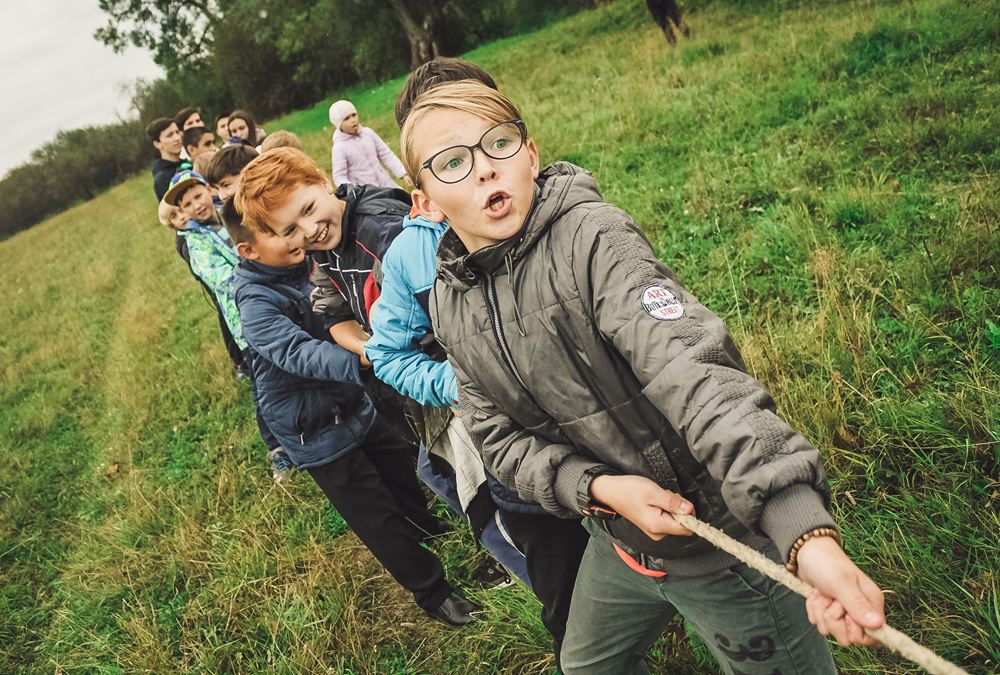- Home
- Business Processes
- Industry Knowledge
- Aerospace Industry
- Automotive Industry
- Banking Domain
- BFSI Industry
- Consumer/ FMCG Industry
- Chemicals Industry
- Engineering & Construction
- Energy Industry
- Education Domain
- Finance Domain
- Hospitality Domain
- Healthcare Industry
- Insurance Domain
- Retail Industry
- Travel and Tourism Domain
- Telecom Industry
- Leadership Skills
- eLearning
- Home
- Leadership
- Change Management
- Storming Stage of Team Development
Storming Stage of Team Development
Storming is the second stage of team development and this stage is characterized by a bid for power and inter-personal conflicts. Learn the key factors that occur in the storming stage and the strategies that a team leader can adopt to pass this stage of high winds
Managing Team Conflicts in the Storming Stage
Storming is the second stage of team development and in this stage, members start competing for status, leadership, and control in the group. When group members get to know each other better, the storming stage begins. This stage is characterized by a bid for power. Every team will move through this phase. Some will stay here longer than others. During the Storming stage, conflicts arise as team members try to figure out their roles and delegate tasks. This stage can be difficult, but it can also be highly productive.
Characteristics of the Storming Stage:
Key factors that occur in the storming stage for the team members might include:
- Individuals understand others' behavior and assert their role in the group.
- Team members may compete for a certain role or position on the team.
- The leader’s authority may be challenged as others compete for the position.
- As a result inter-personal conflict starts.
- Members try to resolve the issues related to the task and working relations.
- They also resolve the issues related to the role of the individual in the group.
- Roles and responsibilities get clarified to a certain extent.
- The rules and ways of working as a team start to be defined.
- The team still lacks established processes.
- The team lacks strong interrelationships with their colleagues.
- Some members may feel overwhelmed by how much there is to do.
- Some members may also feel uncomfortable with the approach being used.
- Some may even start questioning the appropriateness of the goals of the team.
- Some may start resisting taking on tasks.
- Members will begin to open up but also confront each other on ideas.
- Can be painful to team members who are reluctant to deal with conflict.
- Politeness tends to begin to wear off and dissension can occur over.
- Control often becomes the primary issue.
- Disagreements can be either very obvious or subtle.
- Sharp fluctuations in attitude about the team and the project's chance of success.
- Arguing among members even when they agree on the real issues.
Managing Conflict during Storming:
As team members struggle over roles and responsibilities, conflict can arise. But it can also be a highly creative stage as ideas are generated and challenged, and important issues are discussed. Identify what some of the problems are they will need to solve. If they're to move to the next stage, team members must learn to voice disagreement openly and constructively while staying focused on common objectives and areas of agreement. During the Storming stage, to help team development, you should focus on team building to ensure that people can get to know one another and not get stuck in seeing each other as competitors.
Suggestions for the Team Lead/Member in this stage:
To make sure that Storming results in positive growth, the team leader needs to:
- Establish process and structure
- Ensure that everyone stays on track with the team's goal, and
- Help the team define a shared vision
- Work to smooth conflict and build good relationships between team members.
- Allow and encourage productive conflict.
- Need to remain professional and objective.
- Allow each member to share their ideas or ask for input.
- Be open to every team member's input
- Help members to understand and appreciate the other members’ knowledge and skills.
- Generally provide support, especially to those team members who are less secure.
- Remain positive and firm in the face of challenges to your leadership or the team's goal.
- Perhaps explain the phases of team development so that people understand why conflict's occurring, and understand that things will get better in the future.
- Compliment team members.
- Review team goals and ground rules
- Address problem behaviors
- Check processes regularly
- Assure the team of progress
- Apply conflict management techniques
Every team will move through this phase. Storming is the most difficult stage for a team to weather, and this is the stage when many teams fail. Some teams may stay here longer than others. Storming is necessary for healthy team development. When team members begin to trust one another enough to air differences, this signals readiness to work things out.
Related Links
You May Also Like
-
Tools for Developing Your Team
If a manager has too many weak spots in the talent of the team, the ability to empower the team members to independently execute the project is impaired. Assignments fall behind schedule or stretch out because the needed skills or knowledge are not in place when needed. To successfully execute important projects, hiring talented people, and increasing the talents of existing staff are most important.
-
Generating Ideas using Brainstorming
The brainstorming technique was developed by Alex F. Osborn in 1957 and brainstorming means where a team of members generates a large amount of alternative fruitful ideas on a specific problem without any criticism and then evaluates each idea in terms of their pros and cons. Brainstorming techniques fall into four broad categories: visioning, exploring, modifying, and experimenting.
-
This style is characterized by leaders making decisions for others and expecting followers to follow instructions. The directive leader is adept at giving instructions, setting expectations, and establishing timelines and performance standards. However, it is possible for the same leaders to display both directive and supportive behavior as per the demands of the situation.
-
In this study of power, Raven identified five bases of power as coercive, reward, legitimate, referent, and expert. The 5 Types of Power can help you decide when it is appropriate to use a particular type of power in important situations. Leadership involves authority and it is very important for leaders to understand what type of power they're using.
-
In its simplest sense, decision-making is the act of choosing between two or more courses of action. Decision making is a key skill in the workplace and is particularly important if you want to be an effective leader. When decisions have to be made, there are several stages that you should go through to reach a practical solution. Understand the meaning and importance of decision making and how to look at it as a process.
-
Process & Stages of Creativity
Creative ideas do not come just like that. There is a process to it. There are a number of techniques of creativity to support the generation of ideas but the widely practiced ones are brainstorming and lateral thinking. Most innovations are not so much the product of sudden insights as they are the result of a conscious process that often goes through multiple stages. The creative process can be divided into four stages of preparation, incubation, evaluation, and implementation.
-
Participative leadership is one of the most effective styles and creates higher productivity, better contributions from group members, and increased group morale. The democratic leadership style consists of the leader sharing the decision-making abilities with group members by promoting the interests of the group members. Learn more about this leadership style and situations when it is effective.
-
How often do you have a plan for how you are going to spend your day but you aren't able to complete the tasks on your plan because of unimportant tasks, interruptions, or your own procrastination? Wouldn't it be great to be able to manage your schedule and your time while avoiding, or at least controlling, these time stealers? Learn the strategies to manage your schedule while still handling interruptions and demands on your time.
-
Recognizing Stress & its Sources
As an individual, you almost certainly know what stress feels like. Stressors are events or situations to which people must adjust. Stressors may be physical or psychological in nature. The level of severity of stress is determined not merely by exposure but the intensity, duration, and frequency of stressors. The sources of stress are many. They arise from multiple areas both with the individual and from the environment.
-
In today's innovation-driven economy, understanding how to generate great ideas has become an urgent managerial priority. Managers need to encourage and champion ideas and need to help their organizations incorporate diverse perspectives, which spur creative insights and facilitate creative collaboration by harnessing new technologies. Innovation is the embodiment, combination, and/or synthesis of knowledge in original, relevant, valued new products, processes, or services.
Explore Our Free Training Articles or
Sign Up to Start With Our eLearning Courses

About Us
Learning
© 2023 TechnoFunc, All Rights Reserved










